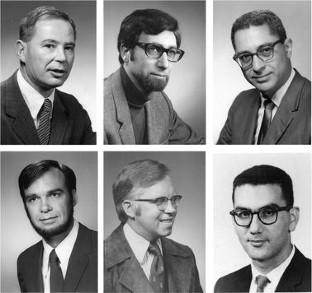密歇根州立大学回旋加速器实验室:早期
IF 0.1
3区 哲学
Q4 HISTORY & PHILOSOPHY OF SCIENCE
引用次数: 0
摘要
密歇根州立大学回旋加速器实验室成立于1958年,多年来发展壮大,成为核科学领域排名最高的大学项目。它的K50回旋加速器作为光离子加速器具有无与伦比的能力,并帮助定义了现代回旋加速器可以做什么,以促进我们对原子核的理解。本文描述了回旋加速器实验室发展的头二十年,并对实验室及其早期成员的文化特征进行了一些了解,这些文化特征导致了它的蓬勃发展。本文章由计算机程序翻译,如有差异,请以英文原文为准。

The Michigan State University Cyclotron Laboratory: Its Early Years
The Michigan State University Cyclotron Laboratory was founded in 1958 and over the years grew in stature, becoming the highest-ranked university-based program in nuclear science. Its K50 cyclotron had unmatched capability as a light-ion accelerator and helped to define what a modern cyclotron could do to advance our understanding of nuclei. This paper describes the first twenty years of the Cyclotron Laboratory’s evolution and gives some insight into the cultural characteristics of the laboratory, and of its early members, that led it to thrive.
求助全文
通过发布文献求助,成功后即可免费获取论文全文。
去求助
来源期刊

Physics in Perspective
物理-科学史与科学哲学
CiteScore
0.60
自引率
0.00%
发文量
10
审稿时长
>12 weeks
期刊介绍:
Physics in Perspective seeks to bridge the gulf between physicists and non-physicists through historical and philosophical studies that typically display the unpredictable as well as the cross-disciplinary interplay of observation, experiment, and theory that has occurred over extended periods of time in academic, governmental, and industrial settings and in allied disciplines such as astrophysics, chemical physics, and geophysics. The journal also publishes first-person accounts by physicists of significant contributions they have made, biographical articles, book reviews, and guided tours of historical sites in cities throughout the world. It strives to make all articles understandable to a broad spectrum of readers – scientists, teachers, students, and the public at large. Bibliographic Data Phys. Perspect. 1 volume per year, 4 issues per volume approx. 500 pages per volume Format: 15.5 x 23.5cm ISSN 1422-6944 (print) ISSN 1422-6960 (electronic)
 求助内容:
求助内容: 应助结果提醒方式:
应助结果提醒方式:


